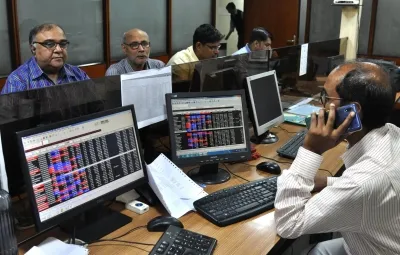Indian Stocks Likely to Rebound Soon; Global Factors Crucial: Morgan Stanley

Synopsis
Key Takeaways
- Indian stocks may see a revival soon.
- Global factors are crucial to market performance.
- Current stock prices are at a low point.
- The Union Budget supports growth initiatives.
- Expectations of foreign direct investments are positive.
Mumbai, Feb 18 (NationPress) Global brokerage Morgan Stanley has indicated that Indian stocks may experience a revival shortly, although global factors will play a pivotal role.
In their most recent analysis, Morgan Stanley's analysts suggested that while it is challenging to identify the lowest point, investing in Indian equities could yield favorable returns.
The brokerage noted that India is emerging from a slow growth phase observed in recent months, with global news showing positive trends.
Current stock prices are lower than they have been since the Covid-19 market bottom.
The benchmark NSE Nifty 50 and BSE Sensex have decreased by 13.3% and 11.7%, respectively, from their previous peaks.
Morgan Stanley also highlighted that the Union Budget is favorable for growth, attributing this to increased capital expenditure and decreased subsidy spending.
The Reserve Bank of India's decision to cut rates alongside its commitment to liquidity is expected to provide further support. Additionally, a series of tax reforms implemented in India is anticipated to attract foreign direct investments, as noted in their report.
With a decline in crude oil prices and an improvement in geopolitical conditions due to the potential resolution of conflicts, the outlook appears brighter. The report stated, “The dollar has adjusted, and India’s real effective exchange rate has weakened.”
Morgan Stanley anticipates that India will likely resume its outperformance compared to other emerging markets in the upcoming months, provided that global factors do not take a negative turn.
Key fundamentals, such as strong macroeconomic stability, improving trade conditions, mid- to high-teen earnings growth projected annually over the next three to five years, and a dependable source of domestic risk capital, are crucial for potential growth.
In a previous report, the global brokerage noted that while the direct consequences of reciprocal tariff increases by the US are expected to be manageable, the indirect effects on business confidence could be more concerning.
Nonetheless, it is believed that domestic policies will continue to support growth, and further measures will be implemented should downside risks arise.









